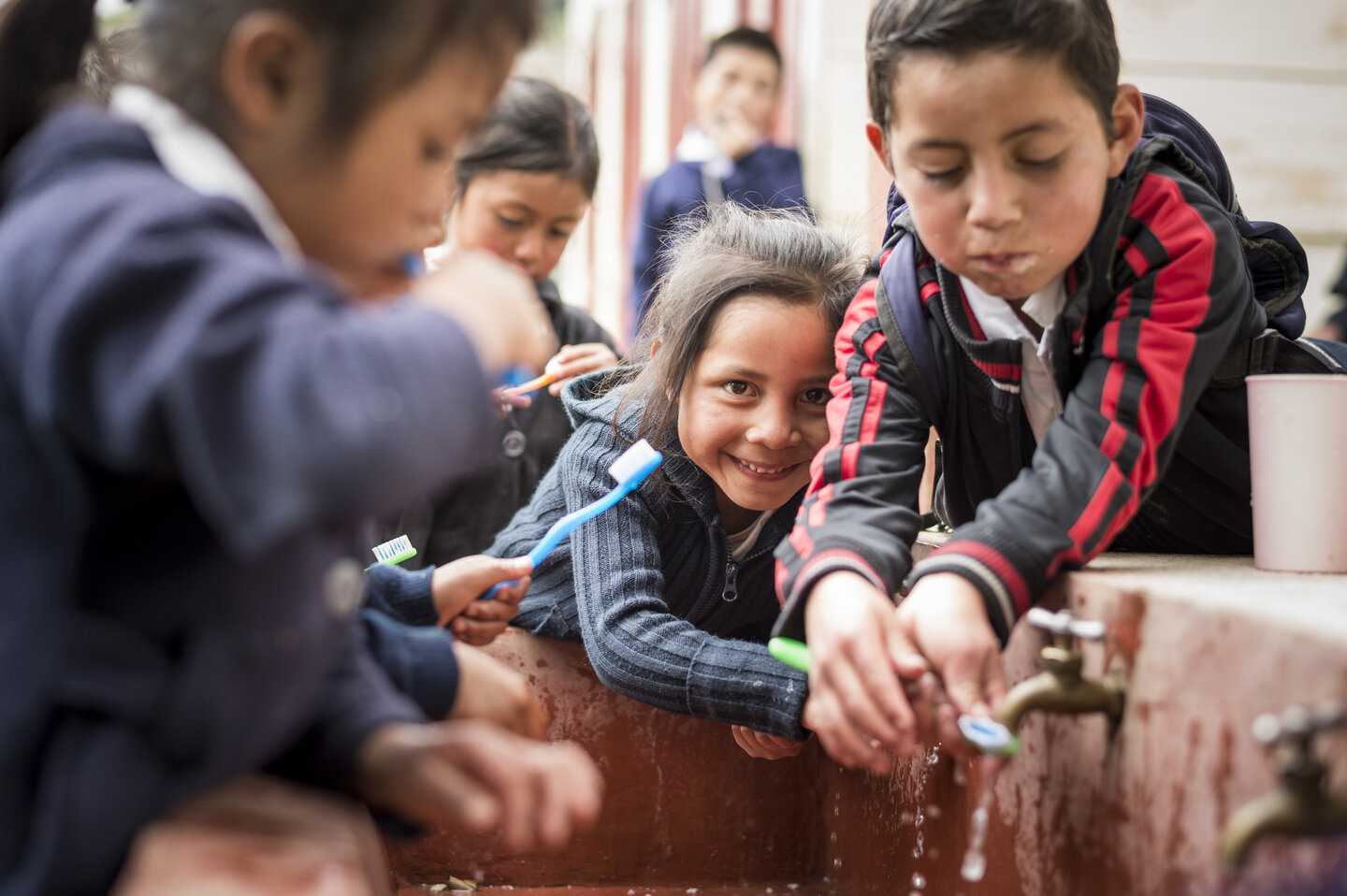The state is responsible for water supply systems in Guatemala. But the water quality remains catastrophically poor owing to inadequate technical know-how and poor governance. Helvetas helps the local authorities in the Western Highlands in organizing themselves and water management committees in planning maintenance efficiently, and openly reporting how revenue from water charges is used.
-
Название проекта
-
Этап проекта2018 - 2022
-
Тематический фокусВода
Управление, мир и миграция
Going clean
Three quarters of the population of Guatemala now have access to well water at a pump or even mains water at home. This is a high percentage, which goes to show that policymakers have made the building of water infrastructure a priority. But what people consume from this infrastructure is usually contaminated with microbes and can’t even be called drinking water. Experts estimate that over 95 % of all the water supply systems here are contaminated.
As with other major infrastructure projects, the inauguration of a new water supply system, bridge or health post is celebrated with speeches and music... and then its upkeep is neglected. A multi-faceted Helvetas project in the Guatemalan Highlands focuses on this disparity between investment and maintenance. The object is to develop a new culture in public service – from the authorities, mayor’s offices and municipal administrations to water management and village development committees, as well as all the organizations that deal with water and basic sanitation – in forty municipalities with an aggregate population of roughly 600,000.
In courses and workshops that include excursions and regular meetings to exchange findings and know-how, we familiarize officials and decision-makers at community and municipal level with the regulations on water and sanitation. They learn to use their competences and incorporate water and basic sanitation issues into their daily policymaking practice. We sensitize the public to the fact that maintenance costs money and has to be funded, at least in part, by charging for water consumption. Domestic paying practice is improving, and the authorities inform consumers openly and clearly about their budgets and the use of the funds. All 386 rural communities have set up committees to manage the water supply system in their village. They set the rates for water consumption and promote the acquisition of technical competences necessary for local maintenance. Moreover, they keep track of the revenue paid for water consumption and the expenditure on maintenance.
Furthermore, we are assisting communities in setting new sanitary norms in their communities, freeing their communities from fecal contamination and managing their watersheds, by themselves
The training is supervised by the university of Quetzaltenango and the competent line ministries. It is funded by the European Commission, the Spanish Agency for International Development Cooperation (AECID), the United Nations Emergency Response Fund (CERF), the Swiss Esperanza Foundation and other institutional donations.





